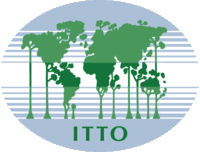 | |
| Formation | 1986 |
|---|---|
| Purpose | Conserve & manage tropical forest resources |
| Headquarters | Yokohama, Japan |
| Website | www |
The International Tropical Timber Organization (ITTO) is an intergovernmental organization that promotes conservation of tropical forest resources and their sustainable management, use and trade. [1]